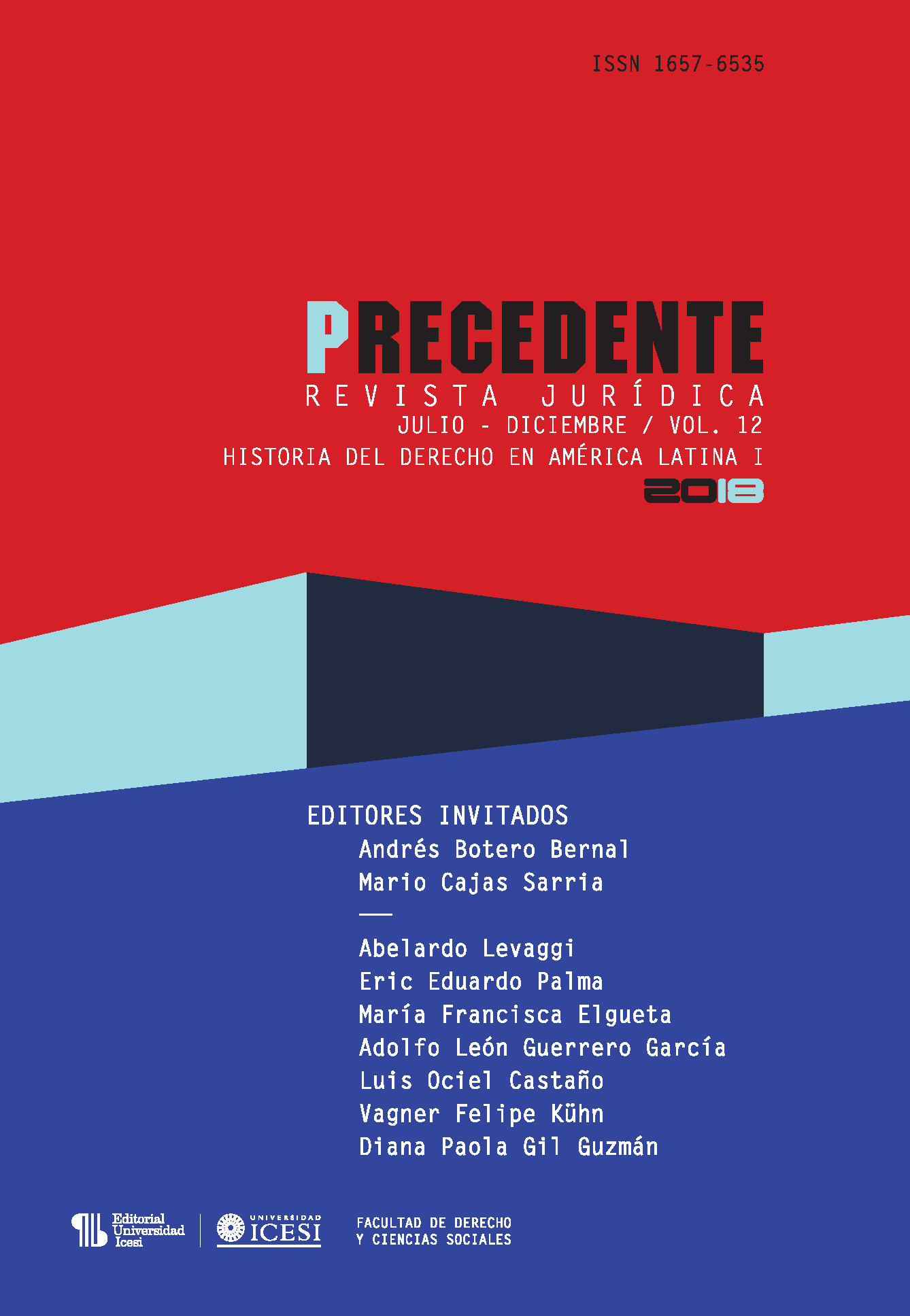Tradition and political change in Province: Popayán, New Granada and the writing of the Constitution of 1814
DOI:
https://doi.org/10.18046/prec.v12.2650Keywords:
New Granada, Constitution, Independence, Republic, Élite, Cabildo, Catolic religion, Change, Tradition.Abstract
Between 1808 and 1816, that is to say, the time between the adjuration and disloyalty to the King of Spain; The deposition of the viceroyal authorities in New Granada and the reactivation of the Army of restoration or expeditionary of the King - the members of the cabildos in the main cities opposed to the continuity of the authority of Spain, writing a ten of texts, declarations of independence and constitutions in order to anchor a confederation of small states or new provincial governments and thus prevent the advance of the military recovery of the Kingdom by the expeditionaries and the resurgence of tyranny in the Kingdom. With the declaration of independence of the province of Popayan, the intellectual and political actions of the autonomous segment of the town council, and the drafting of a manuscript of political constitution for the province, it was intended to extend the constitutionalist advance in New Granada. His primary interest in three acts was to write an inaugural text, to strengthen the union of Confederate States and to establish an autonomous constitutional government that would dissolve ties with the Spanish political body. This complex dynamic, hampered by the Spanish reconquest, is described in this article.
Downloads
Downloads
Published
Issue
Section
License
Copyright (c) 2018 Adolfo León Guerrero García

This work is licensed under a Creative Commons Attribution-NonCommercial 4.0 International License.
Material in this publication may be reproduced without authorization, provided the title, author and institutional source is acknowledged.








